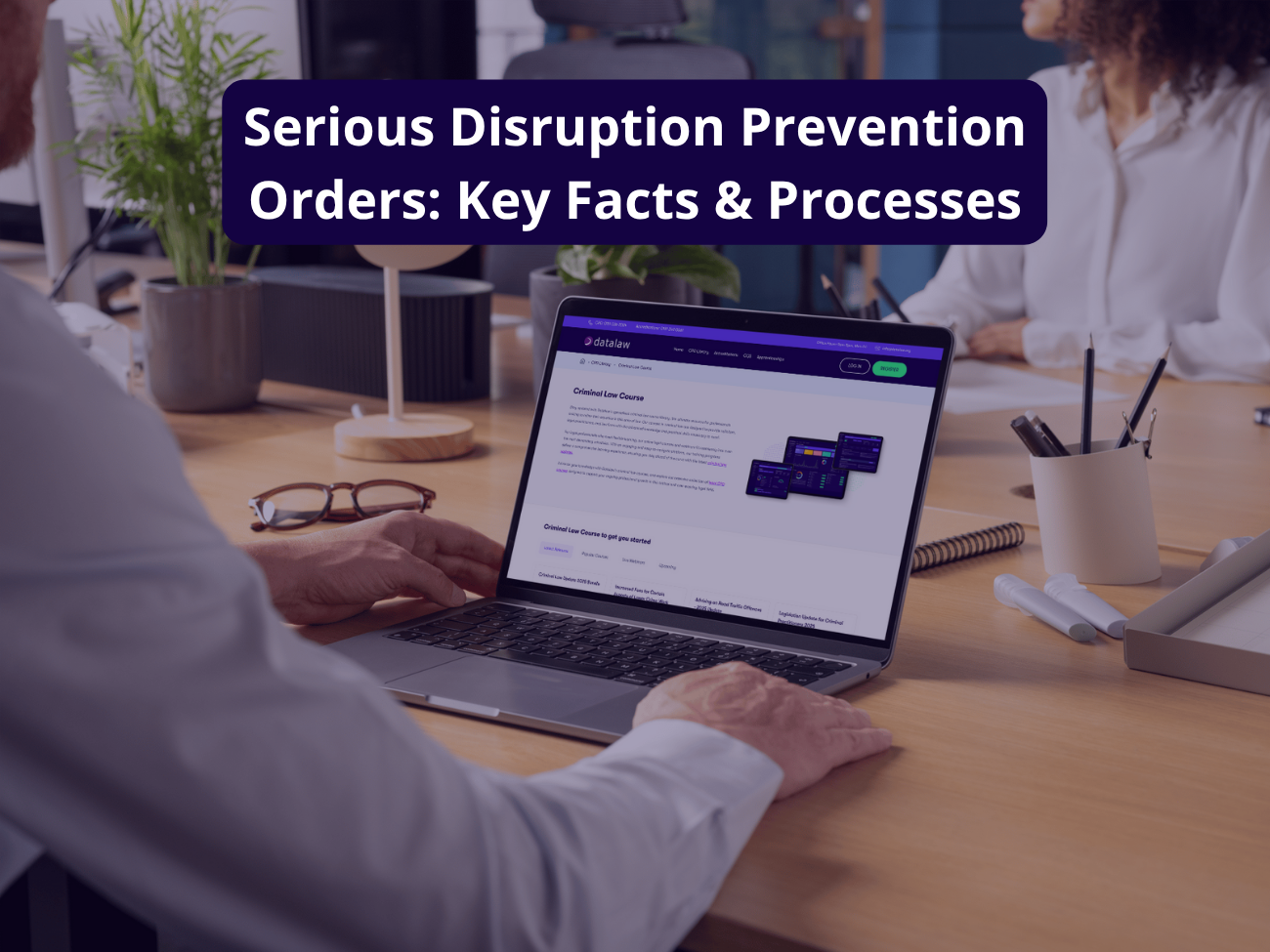Serious Disruption Prevention Orders (SDPOs) are a new legal tool designed to tackle public order offences by targeting individuals involved in repeated or significant disruptive activities. Introduced under the Public Order Act, these orders aim to prevent further criminal activity by imposing strict conditions on those deemed likely to engage in disruptive protests or unlawful demonstrations.
Download our Free “Criminal Law Update Bundle 2025” Brochure
Understanding the Legal Framework of SDPOs
SDPOs are part of the government’s efforts to maintain public order and reduce large-scale disturbances. These orders apply to individuals with a history of causing serious disruptions, particularly through protests or civil disobedience. The Public Order Act outlines the criteria, procedural steps, and enforcement mechanisms for SDPOs.
To impose an SDPO, courts must confirm that an individual has committed at least two public order offences within a set period. These offences may include obstructing roads, interfering with key infrastructure, or engaging in violent protests. The court must also determine that the order is necessary to prevent further disruptions.
How SDPOs Are Applied and Enforced
The process for obtaining an SDPO involves several key steps:
- Application Stage – Law enforcement agencies or the Crown Prosecution Service apply for an SDPO against an individual.
- Court Proceedings – A judge reviews the case, assessing whether the individual meets the legal threshold for an order.
- Imposition of Conditions – If granted, the SDPO sets restrictions such as travel bans, prohibitions on attending certain events, or limitations on associating with specific groups.
- Enforcement and Compliance – A breach of an SDPO results in criminal charges, which can lead to penalties, including imprisonment.
Because SDPOs impact civil liberties, courts must balance public safety with individual freedom of expression and assembly.
Challenging and Defending Against SDPOs
Legal professionals play a crucial role in helping clients comply with SDPOs, appeal imposed orders, or defend against alleged breaches. Common defence strategies include:
- Arguing that the legal threshold for an SDPO has not been met.
- Demonstrating that the conditions are excessive or infringe on fundamental rights.
- Proving that any alleged breaches were accidental or lacked intent.
A strong legal defence ensures that individuals receive fair treatment while allowing authorities to enforce public order laws appropriately.
The Role of Criminal Law Training in Navigating SDPOs
Due to the complexity of Serious Disruption Prevention Orders, legal practitioners must stay informed about their evolving legal framework. Datalaw’s criminal law online course, Serious Disruption Prevention Orders, involving the Public Order Act 2023, which provides an in-depth analysis of these orders, equipping professionals with the knowledge needed to handle SDPO-related cases effectively.
This course offers insights into:
- The Public Order Act and its application to SDPO cases.
- Legal strategies for applying for, enforcing, or contesting SDPOs.
- Real-world case studies demonstrating practical challenges and legal responses.
Discover more of our Legal Updates.



